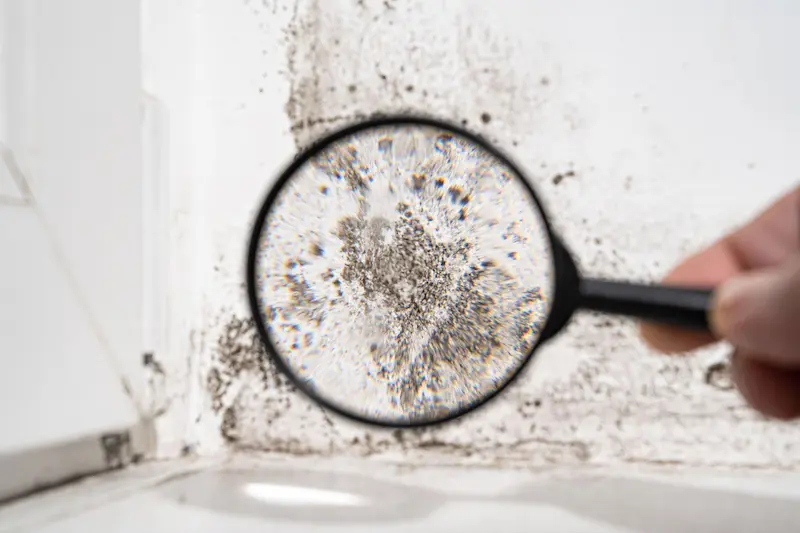Mold toxicity, often underestimated, can have a profound impact on your health. Mold spores are ubiquitous, and they can find their way into your home or workplace, often unnoticed. The detrimental effects of mold on health can be serious, ranging from mild symptoms to severe health conditions.
In this article, we’ll delve into the 10 warning signs of mold toxicity, helping you better understand the importance of recognizing these symptoms early.
Warning Signs of Mold Toxicity: Introduction to Mold Toxicity
Mold is a type of fungus that can grow indoors or outdoors in various environments. While not all molds are harmful, some produce mycotoxins that can harm human health. Mold toxicity, or mycotoxicosis, occurs when individuals are exposed to these mycotoxins.
The importance of being aware of mold toxicity cannot be overstated. Mold problems are often silent and hidden, and the symptoms can be mistaken for other health issues. Recognizing the warning signs is crucial to protect your health and the well-being of your family.
The Health Implications
Warning Signs of Mold Toxicity is not something to be taken lightly. Mold exposure can lead to various health problems, and in some cases, it can be life-threatening. The most concerning aspect is that mold-related health issues are often insidious, and their actual cause may go unnoticed for an extended period.
Common Mold Types
Mold can manifest in various forms, but some types are more likely to cause health issues than others. It’s essential to be able to identify these molds and understand where they thrive. Common problematic molds include Stachybotrys, Aspergillus, Penicillium, and Cladosporium.
Recognizing the Warning Signs of Mold Toxicity
The key to addressing mold toxicity is early recognition of the symptoms. These signs can be diverse, affecting various systems in your body. Let’s dive into the ten warning signs you should watch out for.
Headaches and Fatigue
Headaches are a common symptom or Warning Signs of Mold Toxicity, often accompanied by persistent fatigue. Mold toxins can affect your central nervous system, leading to chronic headaches, dizziness, and a sense of constant tiredness.
Respiratory Issues
One of the most common signs of mold exposure is respiratory problems. If you experience persistent coughing, wheezing, or sinus congestion, mold might be the culprit. Prolonged exposure can even lead to the development of chronic respiratory conditions.
Skin Irritations
Mold toxins can also trigger skin problems. These may manifest as rashes, hives, or other unexplained skin irritations. It’s essential to distinguish these symptoms from common skin conditions, as addressing the root cause is crucial.
Allergies and Sensitivities
Mold can exacerbate allergies and sensitivities in individuals. If you notice increased allergy symptoms or heightened sensitivity to various substances, mold could be the underlying trigger.
Cognitive and Neurological Effects
Warning Signs of Mold Toxicity can have profound effects on cognitive function. You may experience difficulties with memory, concentration, and even mood swings. These mental and neurological symptoms can be particularly challenging to diagnose.
Digestive Problems
Digestive issues, such as stomach cramps, diarrhea, and nausea, can also result from mold exposure. If these problems persist without a clear cause, mold may contribute.
Visual and Hearing Disturbances
While less common, some individuals exposed to mold may experience visual and hearing disturbances. These can range from blurred vision to sensitivity to light and even hearing problems. Seeking medical attention is imperative in such cases.

The Importance of Professional Testing
Given the stealthy nature of mold issues, professional mold testing is often necessary. If you suspect Warning Signs of Mold Toxicity based on the symptoms you’re experiencing or if you’ve had previous water damage or mold issues, consulting a professional is a wise choice. Professional testing can accurately identify mold types and levels.
Prevention and Remediation
Preventing mold growth is the best way to avoid mold toxicity. Keep your living spaces well-ventilated and dry, fix any leaks promptly, and address water damage immediately. If mold is already present, remediation measures are essential to remove it safely and effectively.
Seeking Medical Help
If you suspect Warning Signs of Mold Toxicity due to the symptoms you’re experiencing, it’s essential to consult a healthcare professional. Accurate diagnosis is crucial to determine the appropriate treatment and to rule out other potential health issues.
Conclusion
Warning Signs of Mold Toxicity is a serious health concern that should not be underestimated. Recognizing the warning signs early is vital for your well-being and that of your loved ones. If you experience any of the symptoms discussed in this article, take them seriously and seek professional advice promptly. By staying informed and proactive, you can protect yourself from the potential health risks associated with mold toxicity.
FAQs About Warning Signs of Mold Toxicity
Is mold toxicity a common problem?
Mold toxicity is more common than people realize, but it often goes undetected due to its hidden nature. Awareness and early recognition are critical.
What are the long-term effects of mold toxicity?
Long-term exposure to mold toxins can lead to chronic health conditions, including respiratory problems, neurological issues, and more.
Can I remove the mold myself, or do I need a professional?
For extensive mold problems, it’s best to consult a professional for safe and effective removal. DIY methods can be suitable for minor issues.
How can I prevent mold growth in my home?
Preventing mold growth involves keeping your home dry and well-ventilated, fixing leaks promptly, and addressing water damage.
Is it possible to have mold toxicity without visible mold in my home?
Yes, mold toxicity can occur without visible mold. Some mold types are hidden, and their spores can still affect your health. Professional testing may be necessary to confirm their presence.







